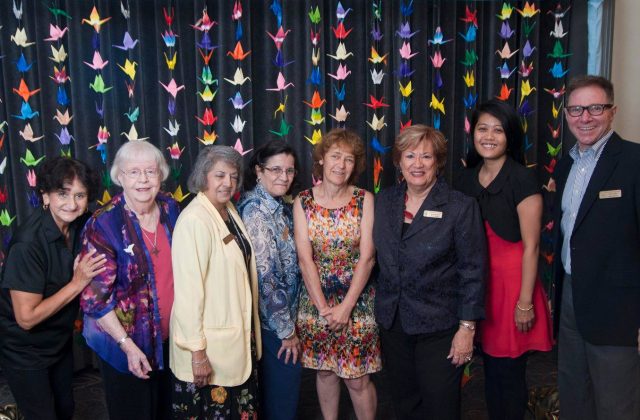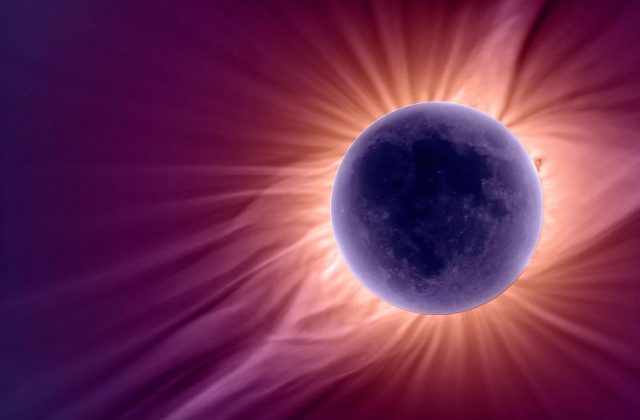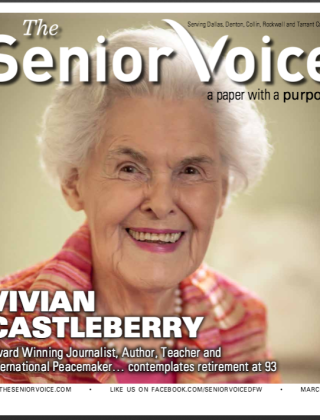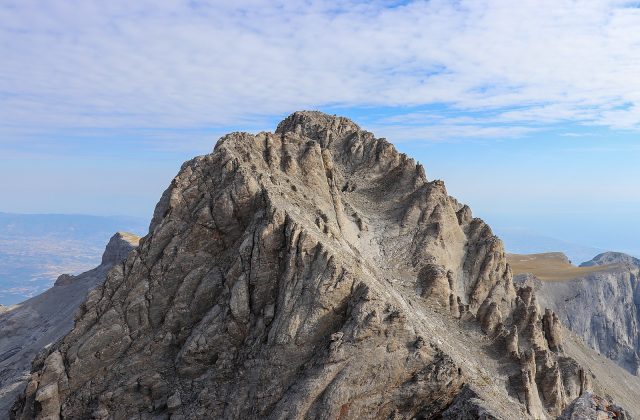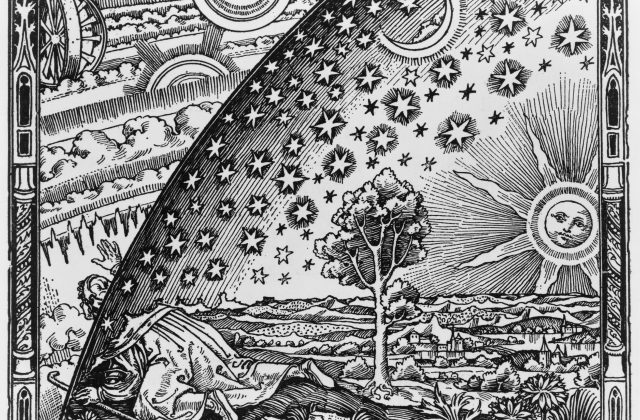Bill Holston: segregation, legal life, human rights, & religion
by Amy Martin
Bill Holston is well known in North Texas as the lawyer who serves as executive director for Human Rights Initiative of North Texas (HRI). We sat down for a long and fascinating conversation a few weeks ago. It was too much to fit into one article! Edited version with nature emphasis at GreenSourceDFW. Below are excerpts focusing on his segregated childhood, his development as a lawyer, his human rights work, and his religious evolution.
Human rights wasn’t Holston’s life-long passion. But early in his career as a lawyer, he was court-appointed to represent a Central American refugee in a case and it opened his eyes to the political issues of Central and South American unrest. Once he represented an asylum seeker, he knew he’d found his life’s work, a passion encouraged by his wife, Jill, a dyslexia specialist for the Richardson ISD. He kept at least one pro bono case in his queue until taking his position at HRI, including representing unaccompanied immigrant children. They have two grown sons, Fred and Will.
A Deep South Childhood
GREEN SOURCE DFW: I don’t know that many people understand how different the Deep South is, because Texas is not the Deep South. You’ve mentioned the racist surroundings of your youth. Was that more of local ethos or was it something specific to your family?
BILL HOLSTON: I’ll just say it was omnipresent. I was conscious of my race from my earliest memories. I was definitely taught that black people were different. Everyone I knew used racial epithets. We had a maid when I was growing up. I think that’s really the only black person I knew until I got to be about 12 when they integrated our Little League and Boy Scout camp. That was the first casual experience I had with black people.
GREEN SOURCE DFW: What changed about your interactions?
BILL HOLSTON: It was the first time in my life I’d had a personal encounter with a black person my age. And then it was just normal. I’m not sure I had expectations of what that would be like, but once I had it I was like, “Okay, here is this kid and he’s like me.” And that was the first step in starting to question all of it.
GREEN SOURCE DFW: Were you alone in your high school in this aspect?
BILL HOLSTON: So when they desegregated public schools in Mobile where I grew up, my parents pulled my brother and I out and put us into a private Christian academy. It was very common in Mobile. I went to segregated schools until I was until I moved here as a senior
GREEN SOURCE DFW: But your Boy Scouts and Little League were integrated. Did that not bother them?
BILL HOLSTON: I’m not sure I talked to them about it, actually. My father was a virulent racist. My mother was kind of a typical Southern lady, her racism was more subtle. She didn’t routinely use the N word.
GREEN SOURCE DFW: What was church like for you growing up?
BILL HOLSTON: It was segregated as well. Every single part of my life was segregated other than my experience with Boy Scouts. Starting in about 1972, the Jesus movement, the hippie Christians, were all over the country and that was integrated. So that was the first time I was in a faith circle where you have black and white people together.
GREEN SOURCE DFW: Was there a deep meaning that you got out of church as a kid?
BILL HOLSTON: I would say not until I was a junior in high school and then I had a pretty profound religious experience. So my Christianity became personally meaningful to me. Before that was I just went to church with my family, it didn’t really mean very much.
GREEN SOURCE DFW: That experience that shifted you, did it happen out in nature? Was it something that brought you great peace?
BILL HOLSTON: I’m not sure I put it that way. I wasn’t a very deep kid. [laughs] It was more like it was just fun. I enjoyed being in nature because you could go swimming in creeks, chop on trees, cook over open fires. I enjoyed all of that. It was not until I was an adult that I started finding a sense of conscious tranquility in nature.
GREEN SOURCE DFW: You reached Eagle Scout, right? Was that your first naturalist inklings?
BILL HOLSTON: Oh, sure, yeah. It may be different now from back then, and certainly it depends on the Scout leader, but I don’t think I learned very much about plants, animals, things like that. Maybe a bit of tree ID for different merit badges. So really in terms of diving into like a detailed knowledge of nature, that didn’t really happen until just before I did the Master Naturalist training. And that’s one of the things that drove me to be a Master Naturalist was because I was out in nature a lot, but not very knowledgeable.
Becoming a Lawyer
GREEN SOURCE DFW: So your parents brought you here for senior year and that’s how you ended up at UTD?
BILL HOLSTON: Yeah, sort of. My parents were not helpful at all about navigating college and all of that. So my brother and I were figuring out on our own and paying for it. So I went to Richland community college for first two years. I think it was a symbiotic relationship between the community colleges and UTD back then. I could live at home and go to school and it was really affordable. A semester then cost like $200. Yes. So I could work part-time jobs and pay for my college. There was no campus life, but I got a really, really good education.
GREEN SOURCE DFW: Any interesting jobs while you were an undergrad?
BILL HOLSTON: I wouldn’t say interesting. I had a lot of like hard jobs. By sophomore year, I went to class Monday, Wednesday, Friday, and worked in an asphalt plant Tuesdays, Thursdays, and weekends. I was on a paving crew, we’d go out and do running tracks for high school. It was really hot work. I worked in oil construction firms for a couple summers in the payroll department. I would go into town with like 20 igloo coolers and go to an icehouse. I’d buy ice by the block and chop it up and then carry them out to where the crews were, which is really heavy. I was able to make enough money to pay for tuition.
GREEN SOURCE DFW: How did you end up in SMU Dedman School of Law?
BILL HOLSTON: I applied to three law schools, Texas Tech, UT, and SMU, and I got into Tech and SMU. I went out to Tech and just thought Lubbock was the ugliest place. And then I thought, well, if at SMU I could live in home and it would be about the same amount of money as going to Tech. And it was a big culture shock because I was not, you know, a rich kid. I wasn’t a poor kid, but I wasn’t a rich kid. I’d never seen kids wearing khaki pants. [laughs], button-down white shirt, deck shoes and all of that. I really had no affection for SMU. But I got a sound legal education for which I paid a lot of money. No help to me getting a job.
GREEN SOURCE DFW: No mentors or anything?
BILL HOLSTON: No, not at law school. I got a job, but it had nothing to do with law school. [While at Dedman] I got a job in a small law firm. Well, I wouldn’t even call it a law firm then. Just a bunch of lawyers office sharing. So I got a job as a law clerk with them. A couple of those guys I would say were mentors. They definitely helped me learn how to be a good lawyer. And they taught me a lot about what it actually meant to practice law. I’d go to the court with them and try cases and pick juries. I got a ton of practical experience.
The other thing I would say is that they were they were generous to me. I never paid for a lunch the whole time with these guys. Along the way I got some good practical advice. I remember one of the lawyers said to me, which turned out to be one of the best pieces of advice I’ve ever gotten: “Whatever phone call is the one you don’t want to return, you return that one first.”
GREEN SOURCE DFW: That’s good across the board. So you went from there to a law firm?
BILL HOLSTON: No, I when I graduated from law school I started my own practice. That’s what I did the first like three and a half years. I did criminal defense work, just anything to do at the courthouse I did. At that time there was still courts in the Old Red, that were civil and criminal courts in George Allen, there were probate and district court at the Records Building. And I was at every one of them. [laughs]
GREEN SOURCE DFW: So general all-around lawyer.
BILL HOLSTON: I was kind of like a street lawyer. If somebody had money, they could hire me to be their lawyer. Then I went to work for a small law firm as an associate and then eventually became a partner. And I was there [Sullivan and Holston] for 25 years.
Progressive Changes at SMU
GREEN SOURCE DFW: It must have been interesting for you to get an award from SMU?
BILL HOLSTON: It was and actually I credit this current dean [Jennifer M. Collins]. Because no one had ever reached out to me or talked to me about my pro bono work. But when this dean got here, she knew what we did at HRI. But really I got that award because I had a classmate who was a professor at SMU and she was lobbying for me to get that award.
But I really I thought it meant a lot because in general SMU is known as a business, not as a public interest school, and so the fact that they gave a distinguished alumni award to somebody because of public interest was a big deal. I thought that reflected a cultural change in the law school. It is a very different place from when I was there. They have immigration clinics, domestic violence clinics, and public-interest requirements. They have professors that are taking students on field trips, they’re working on pro bono cases. Now we [HRI] get a lot of interns from SMU.
GREEN SOURCE DFW: That’s good. You know, the engineering school has had a big shift. Hunt Institute for Engineering & Humanity, really proud of their work, and their archaeology department has some really profound thought. And, you know, the God Quad [Perkins School of Theology]. They’ve always been great mellow Methodists.
BILL HOLSTON: Oh, totally. Yeah. Bill McElvaney over there. Not sure I’d call him mellow. No, I think he was kind of radical. Yeah. A great mentor to a lot of young people about getting their education. He was talking about social justice before anybody.
I changed my attitude about SMU when they changed. I had no connection with the school other than I had a degree from there. Although I made a lot of good friends. John Caruso the DA was a year behind, there were two federal judges in my class. We had a lot of really great people. I had a lot of great friends and they’ve been helpful to me in this job [with HRI].
Human Rights Initiative
GREEN SOURCE DFW: So where were you working when you started pro bono at HRI?
BILL HOLSTON: Actually it was before HRI. So I started taking pro bono cases through an agency that’s not around anymore called Proyecto Adelante. I think Parker Wilson, who was a retired lawyer, started it. Midway Hills was his church. He started taking asylum cases for Central Americans and eventually it became an agency. So I started taking cases from them in the ‘80s when they were mostly doing sexual, Guatemalan and Salvadoran asylum cases. And it was a really great experience. I continued to do that from the mid ‘80s to ‘99. HRI started in ‘99 and I began taking cases for them.
GREEN SOURCE DFW: Was there anything particular about HRI that drew you to them?
BILL HOLSTON: I knew the founders, Serena Connelly and Betsy Healy, personally. Betsy was then a pro bono lawyer at Proyecto and I was her mentor lawyer on her first case. And what attracted me them was their vision was to do high-quality legal work. Proyecto was a bunch of really good-hearted people. Betsy and Serena wanted to have a place that operated like a law firm, doing legal services but integrated with social services. And they were devoted to the volunteers having a really good volunteer experience. Asylum work was what I really wanted to do.
GREEN SOURCE DFW: Most of your awards came when you were with HRI, right?
BILL HOLSTON: I think that’s probably all of them.
GREEN SOURCE DFW: Is there one that stood out to you?
BILL HOLSTON: I’d say it was getting the Martin Luther King Jr. award from the Dallas Bar Association. When you associate your name with Dr. King, that’s a very sobering thing. I remember telling them, “Well, I’m going to try to live up to this award.” I think if you feel like you deserve an award like that, then you’re not really thinking about it right. And, honestly, all these awards, to me it’s a platform to talk about these issues.
For instance, when I got the Martin Luther King Jr. award, I went to this luncheon with all the bar leaders and I could talk about human-rights issues to that whole group. In fact, I talked about how that day was when the Dallas black clergy issued their ten demands on the city about racial justice. And I read all ten of their demands as part of my talk.
GREEN SOURCE DFW: What a convergence!
BILL HOLSTON: Then the other thing is that I think it’s important that this kind of work gets recognized. It’s good for my agencies, good for my young lawyers. Like one of the things my wife and I did when we got that award is we bought a table. And we invited a whole bunch of young activists that I knew that they couldn’t afford a luncheon like that.
The whole thing, particularly with my background, you know, coming from Alabama where Dr. King was not respected in my family. Nobody I knew mourned his death, though there were probably people that were afraid of retribution.
Keeping the Faith
GREEN SOURCE DFW: Did Dr. King’s Christianity impress on you?
BILL HOLSTON: Eventually it did. But initially I was first attracted to Dr. King because he was speaking the truth about racial injustice. I think it was actually much later than I started like seeing it. Because most of my life until my wife and I became Methodists, and that’s been about eight years ago, I was going to evangelical churches, pretty conservative churches. Justice was not something people talked about. I was always an outlier in that community because I was a political liberal. So it was really only when I started going to a Methodist church that those things aligned.
GREEN SOURCE DFW: What drew you to Greenland Hills [United Methodist Church]?
BILL HOLSTON: My wife was in a book club with the pastor. Our old church was going through a lot of turmoil and we wanted to change churches. We went to Greenland Hills and it’s a really warm, lovely place. And Kerry Smith, the pastor, is a very warm person.
GREEN SOURCE DFW: It must have been difficult to be a Christian through all of this time.
BILL HOLSTON: Oh, yeah, actually it was. When I was in law school it was the Reagan years. That’s when the church really started getting co-opted by the Republican Party. And I wanted none of that. It was very alienating. I felt a real disconnect with the church. In fact, I quit going to church during law school for that reason. I just didn’t feel like I fit in. Worse than that, a lot of the things I thought were important weren’t really acknowledged at all.
So I started going back to church once I graduated from law school. A guy I knew when I was in law school was going to seminary. He was the singles pastor at a church and I had a lot of respect for him. One of the reasons I was able to survive then was that he never integrated conservative politics with church. So the people in the church might be conservative, but that was never what he was preaching, but he wasn’t preaching progressive politics either.
GREEN SOURCE DFW: He was just sticking to what must be the core messages of the Bible, what must have kept you being a Christian this whole time.
BILL HOLSTON: That’s right. As my interest and passion for human rights increased, at the same time I could see those themes in the scripture really spelled out. So over time, it’s not like the Bible brought me towards justice work, or the justice work led me to the Bible. It was more like these parallel paths started to converge.
Human Rights & Christianity
GREEN SOURCE DFW: But you know, there are those who voted for Trump who now plan not to vote for him because of the way migrant children were taken from their parents and treated so cruel.
BILL HOLSTON: Yeah. I think that was a watershed moment. I was wearing an immigrant rights or human rights button at a Sunday brunch up in Kansas with my wife’s family. So this old white guy comes up to me and said, “So I guess you’re a liberal.” I said, “I’m not sure immigrant rights, human rights, is a liberal slogan, but I am.” And he’s like, “You know, I’m very conservative, very pro Second Amendment, but you know, when they start taking babies from mothers, well, I’m not I’m not down with that.” I think that was kind of a bridge too far.
GREEN SOURCE DFW: Is there a personal message from Jesus that has stuck with you this whole time to keep you in the Christian fold?
BILL HOLSTON: There’s probably two, maybe three things. One is the Beatitudes. Matthew five and six and seven. Like everybody wants to put the Ten Commandments sins in the square, but the Beatitudes, that’s a radical message. It resonated me when I read it for the first time in the ‘70s and it still does. So there’s that.
Then there’s [Jesus’s] first sermon where he’s, he pulls out the scroll of Isaiah, and he says, “Today is the favorite day of the Lord.” To declare what? To declare the good news for the poor and the oppressed. And that was where he started. That’s his very first sermon. People don’t realize you know, when you use that word “good news” which is euaggélion, where the word evangelical comes from. So the idea of good news is directly tied to fighting for oppressed people, fighting for the poor.
GREEN SOURCE DFW: Saying basically all people have worth.
BILL HOLSTON: Absolutely. And is you know how he interacted with women, interacted with the outcasts like lepers, and the Samaritans, and Gentiles, all these things that were outside of the norm. And then finally that Matthew 25 where he talks about “ I was hungry and you fed me.” That’s a very profound passage because Jesus is personally identifying with feeding the hungry and welcoming the stranger and giving water to people, very fundamental human needs. He says “When you do that for anyone, you’re doing that for me.” And that’s a very, very powerful message. That’s why I can still call myself a Christian.
GREEN SOURCE DFW: Some now call that Missional Christians.
BILL HOLSTON: Yeah, but I feel absolutely close to Muslim people. And people that don’t believe in God at all can be very moral people. And I feel more in common with them than I do with people just because they’re in a church.
GREEN SOURCE DFW: You resonate with people who walk their talk.
BILL HOLSTON: Yeah, well, I resonate with people that live ethical compassionate, humble lives. The people I like, those people I identify as my brothers and sisters, are the ones who want to fight for justice.
